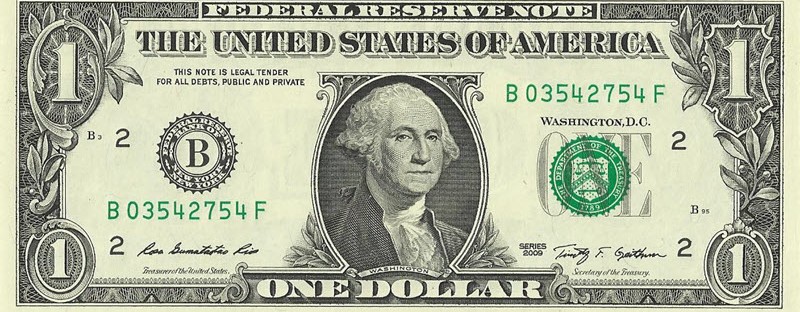October 27, 2019
by Steve Stofka
Mr. Z, the man himself, head of Facebook, showed up in Washington this week to testify before a House committee about privacy and money (C-Span, 2019). Congress is worried about Mark Zuckerberg’s desire to create a digital currency. Several committee members expressed their concern that a private company with a large global influence might wrest control of the world’s currency away from the American government.
Article 1, Section 8 of the Constitution – the enumerated powers section – gave Congress the power “to coin Money, regulate the Value thereof, and of foreign Coin.” The United States has a powerful influence on the international payments system because 52% of transfers are in U.S. dollars (SWIFT, n.d.). The U.S. does not want to give up that global control to Facebook.
As I listened to the exchange between members of Congress and Mr. Zuckerberg, I was reminded that money itself is a narrative. Who gets to dominate that narrative? China and other countries would prefer that U.S. politics did not control the global financial market. When the British controlled the world’s dominant currency, the pound, more than a century ago, the U.S. didn’t like the influence that British leaders had on American lives. The sun never set on the British empire. Now its the U.S. that operates the world’s merry-go-round and the tickets are priced in dollars.
In the digital age Google and Facebook control many of the social and financial exchanges between people around the world. The U.S. government is the 800-pound gorilla in the room and doesn’t like challenges of its dominance. As Facebook and Google get larger and more influential, they become the 600-pound gorillas, but with one important difference. They don’t have an army and a court system like the U.S. does. When Presidential candidate Elizabeth Warren campaigns on breaking up the digital giants because of their monopoly power, those giants pay attention. There is a mood change in Washington that reminds me of the attacks on Microsoft in the 1990s.
We can expect that Facebook and Google will continue their heavy lobbying campaigns and trust in the paralysis of our system of government. The strength of that system lies in the checks and balances built into the Constitution. However, the past decade has shown that those same checks and balances stymie a lot of policy making in Washington. During the worst financial crisis since the Great Depression, it was difficult to enact fiscal policy because that requires legislation which requires consensus, compromise and maturity. Not much of that left in Congress these days.
The chief response to the crisis was handled by a small group of central bankers at the Federal Reserve whose reach is limited by law. Its monetary tools are designed to work with and for banks. Because of that, Wall Street got bailed out during the crisis but not Main Street. Mr. Trump got elected partially on a promise to remedy that situation, particularly in rural America. He was the rainmaker, a billionaire who could get things done that no politician could. No person – even the President of the U.S. – has that much power. Despite the low employment numbers, many communities throughout America have not fully recovered. Mr. Trump’s performance has been theatrical, to say the least. His popular twitter barrage dominates the Washington narrative every day.
And that brings us back to that august body where Mr. Zuckerberg appeared this week. His motives are good, he assured the House committee. A third of the world’s population is unbanked, he noted. Facebook’s promotion of the digital currency Libra and its integration within the Facebook app can help. Calibra is not live yet but the web site will give you a taste of the future (Calibra, n.d.). Concerned about the attention from Congress, large financial institutions like PayPal, Visa and Mastercard have dropped out of the Calibra consortium. Or did Mr. Zuckerberg call it a partnership?
Every criminal organization around the globe is hoping that Mr. Zuckerberg will succeed. Moving $100 bills around is so inconvenient. Mr. Zuckerberg has a solution to help government track down criminal transactions and prevent the digital currency from being used for illegal activities. Law abiding citizens can stay anonymous. How will he accomplish this? It’s a secret. He will tell us soon – very soon.
Even though Calibra will be headquartered in Switzerland, Mr. Zuckerberg promised several times that Facebook will not go through with these digital currency plans until it meets all the concerns of U.S. regulators. There are a lot of regulatory agencies in the U.S. and that very plethora of regulatory bodies contributed to the financial crisis. Investment firms played off one agency against another until they found an agency they liked. Will Mr. Zuckerberg do the same?
Who will control this narrative? The big guns of the U.S. government or the billions of dollars of profit to be had by Facebook if it can scrape just a few pennies per transaction off the trillions of dollars traded around the world each year? My bet is on Mr. Zuckerberg. He is sometimes inartful, but he stumbled on a way into the lives of a few billion people around the world and he has quite artfully capitalized on that.
//////////////////////
Notes:
C-Span. (2019, October 23). Facebook CEO Testimony before House Financial Services Committee. [Web page, Video]. Retrieved from https://www.c-span.org/video/?465293-1/facebook-ceo-testimony-house-financial-services-committee
Calibra. (n.d.). A connected wallet for a connected world. [Web page]. Retrieved from https://calibra.com/
Public Domain. (n.d.) Obverse of United States one dollar bill, series 2009. [Image]. Retrieved from https://commons.wikimedia.org/w/index.php?curid=23332139
SWIFT. (2015, December). Worldwide Currency Usage and Trends. [PDF]. Retrieved from https://www.swift.com/node/19186


